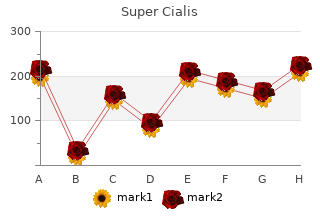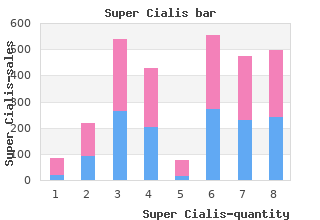|
Super Cialis
By Z. Fabio. Central Christian College of Kansas. 2018.
When it comes to your child cheap super cialis 80mg line impotence from blood pressure medication, the real expert is you super cialis 80 mg discount erectile dysfunction internal pump, the parent. Try to spend time alone with each of your children every day. Set your household up for success -- make it work for the whole family. Model and teach good safety habits and establish routines. Discuss and enforce family rules that work for your household -- for example, putting toys away after play. If you are tired, ill or just worn out, you cannot be an effective parent. Eat healthfully, get enough sleep, take occasional breaks from parenting if possible, and enlist the support of family, friends and neighbors when things seem overwhelming. A sense of belonging is enhanced when families take time to engage in common activities such as having meals together and sharing tasks and responsibilities. Use family time to discuss need and feelings, to solve problems and promote cooperation. Actively teach your children a code of moral conduct and lay the groundwork for them to develop their own moral guide. Child Welfare League of AmericaWritten by Anthony Kane, MDChildren need to know right from wrong. Learn how to give your child constructive criticism. We have an obligation to teach our children how to conduct themselves properly in the world. Part of this duty requires us to correct their mistakes in behavior. One of the ways we do this is through giving our children constructive criticism. First, we need to stress that to give this criticism to our children is not an option, it is an obligation. As parents, we have a duty to redirect our children. When we see things that come up in their daily lives that they do wrong, we must correct this behavior. There are a number of things we should remember when redirecting our children that will make our criticism more accepted and more effective. This is probably the most important thing to remember when criticizing our children. It is obvious to everyone that children have feelings. Yet, very often, it is something that we as parents forget. Children, particularly when they are small, are completely in our control. They have feelings that can be hurt and self-esteem that can be crushed if we criticize them in a non-constructive belittling way. We must try to relate to them as we would like others to relate to us. The goal of proper criticism is to get your message across to your child. You will do nothing positive for your child, and your child will not change his behavior in the future. Remember, your goal with criticism is to educate, not to punish or embarrass or to seek revenge against the child. When you criticize you must have something you are trying to teach. You have an obligation to raise your child properly.

I am thankful that I possess two qualities: being forthcoming about my feelings and being proactive about my health generic super cialis 80 mg on-line erectile dysfunction pump operation. I believe that these qualities are a big part of the reason that I was able to ask for help buy cheap super cialis 80mg line erectile dysfunction treatment maryland. Samantha Schutz: Being forthcoming about my feelings and being proactive about my health. I believe that these qualities are a big part of the reason that I was able to ask for help. I told my parents about my anxiety disorder around Thanksgiving of my freshman year. They probably thought I was off having the time of my life at school and when I told them what was really going on I think it really shocked them. I think that not seeing me in the middle of "it" might have made it harder for them to understand what I was going through. But when I was having a hard time after my junior year and then again after I graduated my parents were there for me. They were very supportive and tried to get me whatever help they could. Was recovering from panic disorder and depression easy, hard, extremely difficult? On the scale of difficulty, where did it lie for you? Samantha Schutz: I think recovery is a great way to describe what I have gone through in the last few years. For the last few years, whenever I tried to talk about my experience with anxiety disorder, I ran into the same problem. Trying to find the right verb was more than just semantics. For many years, having an anxiety disorder shaped nearly every bit of my life- where I went, who I went with, how long I stayed. I do not believe that anxiety disorder can be flipped off like a switch, and accordingly, simply using past or present tense did not accurately reflect how I was feeling. The body has an unbelievable capacity to remember pain, and my body was not ready to forget what I had been through. It was only about a year ago that I settled on saying, "I am in recovery from anxiety disorder. Since that fall, I have seen more than a half dozen therapists and taken as many different medications. I have been to yoga and meditation classes, swung tennis rackets at pillows, practiced the art of breathing, tried hypnosis, and taken herbal remedies. Sometimes things were bad and I had several panic attacks a day. I just had to always remember that panic attacks always end and that bad days and bad weeks always end too. Natalie: You tried different treatments, different medications. What motivated you to continue on with seeking treatment? There were sometimes when things looked pretty bleak... That even though things are pretty bad, there is something they are getting out of feeling bad. There have been a few times that I have felt really depressed and I wanted to feel depressed. I think that at some point I decided I really wanted to get better and that was a sort of turning point for me and I started making more progress. Natalie: One last question before we turn to some audience questions: You mentioned at the beginning that you are stable and better able to live your life.

Sometimes buy super cialis 80mg free shipping erectile dysfunction doctor patient uk, Jung uses other symbols: the child buy discount super cialis 80mg erectile dysfunction testosterone injections, the mandala, etc. It embraces not only the conscious but also the unconscious psyche, and is therefore, so to speak, a personality, which we also are.... There is little hope of our ever being able to reach even approximate consciousness of the self, since however much we may make conscious there will always exist an indeterminate and indeterminable amount of unconscious material which belongs to the totality of the self. Technically, the Shadow is a part (though an inferior part) of the overarching personality. Inevitably, some personal and collective psychic elements are found wanting or incompatible with it. Their expression is suppressed and they coalesce into an almost autonomous "splinter personality". This second personality is contrarian: it negates the official, chosen, personality, though it is totally relegated to the unconscious. Jung believes, therefore, in a system of "checks and balances": the Shadow balances the Ego (consciousness). The behavioural and attitudinal compensation offered by the Shadow can be positive. Jung: "The shadow personifies everything that the subject refuses to acknowledge about himself and yet is always thrusting itself upon him directly or indirectly for instance, inferior traits of character and other incompatible tendencies. If it has been believed hitherto that the human shadow was the source of all evil, it can now be ascertained on closer investigation that the unconscious man, that is, his shadow, does not consist only of morally reprehensible tendencies, but also displays a number of good qualities, such as normal instincts, appropriate reactions, realistic insights, creative impulses, etc. Perhaps the complexes (also the result of incompatibility with the conscious personality) are the negative part of the Shadow. Perhaps they just reside in it, on closely collaborate with it, in a feedback mechanism. To my mind, whenever the Shadow manifests itself in a manner obstructive, destructive or disruptive to the Ego we can call it a complex. They are one and the same, the result of a massive split-off of material and its relegation to the realm of the unconscious. This is part and parcel of the individuation-separation phase of our infantile development. Prior to this phase, the infant begins to differentiate between self and everything that is NOT self. He tentatively explores the world and these excursions bring about the differentiated worldview. The child begins to form and store images of his self and of the World (initially, of the Primary Object in his life, normally his mother). To the infant, this is revolutionary stuff, nothing short of a breakdown of a unitary universe and its substitution with fragmented, unconnected, entities. The child has separate images of a "good" mother and a "bad" mother linked to the gratification of his needs and desires or to their frustration. He also constructs separate images of a "good" self and a "bad" self, linked to the ensuing states of being gratified (by the "good" mother) and being frustrated (by the "bad" mother). At this stage, the child is unable to see that people are both good and bad (can gratify and frustrate while maintaining a single identity). He derives his sense of being good or bad from an outside source. The "good" mother inevitably and invariably leads to a "good", satisfied, self and the "bad", frustrating mother always generates the "bad", frustrated, self. The child is afraid that, if it is found out, his mother will abandon him. Moreover, mother is a forbidden subject of negative feelings (one must not think about mother in bad terms). Thus, the child splits the bad images off and uses them to form a separate image.

The size of the effect was related to baseline frequency purchase super cialis 80mg overnight delivery erectile dysfunction pills made in china, with greater reductions seen in patients with higher baseline frequencies generic 80 mg super cialis erectile dysfunction is often associated with. Although some patients achieved freedom from binge-eating and purging as a result of treatment, for the majority, the benefit was a partial reduction in the frequency of binge-eating and purging. In a longer-term trial, 150 patients meeting DSM-IV criteria for bulimia nervosa, purging subtype, who had responded during a single-blind, 8-week acute treatment phase with Prozac 60 mg/day, were randomized to continuation of Prozac 60 mg/day or placebo, for up to 52 weeks of observation for relapse. Response during the single-blind phase was defined by having achieved at least a 50% decrease in vomiting frequency compared with baseline. Relapse during the double-blind phase was defined as a persistent return to baseline vomiting frequency or physician judgment that the patient had relapsed. Patients receiving continued Prozac 60 mg/day experienced a significantly longer time to relapse over the subsequent 52 weeks compared with those receiving placebo. The effectiveness of Prozac in the treatment of panic disorder was demonstrated in 2 double-blind, randomized, placebo-controlled, multicenter studies of adult outpatients who had a primary diagnosis of panic disorder (DSM-IV), with or without agoraphobia. Study 1 (N=180 randomized) was a 12-week flexible-dose study. Prozac was initiated at 10 mg/day for the first week, after which patients were dosed in the range of 20 to 60 mg/day on the basis of clinical response and tolerability. A statistically significantly greater percentage of Prozac-treated patients were free from panic attacks at endpoint than placebo-treated patients, 42% versus 28%, respectively. Study 2 (N=214 randomized) was a 12-week flexible-dose study. Prozac was initiated at 10 mg/day for the first week, after which patients were dosed in a range of 20 to 60 mg/day on the basis of clinical response and tolerability. A statistically significantly greater percentage of Prozac-treated patients were free from panic attacks at endpoint than placebo-treated patients, 62% versus 44%, respectively. Prozac is indicated for the treatment of major depressive disorder. Adult - The efficacy of Prozac was established in 5- and 6-week trials with depressed adult and geriatric outpatients (?-U18 years of age) whose diagnoses corresponded most closely to the DSM-III (currently DSM-IV) category of major depressive disorder (see CLINICAL TRIALS ). A major depressive episode (DSM-IV) implies a prominent and relatively persistent (nearly every day for at least 2 weeks) depressed or dysphoric mood that usually interferes with daily functioning, and includes at least 5 of the following 9 symptoms: depressed mood, loss of interest in usual activities, significant change in weight and/or appetite, insomnia or hypersomnia, psychomotor agitation or retardation, increased fatigue, feelings of guilt or worthlessness, slowed thinking or impaired concentration, a suicide attempt or suicidal ideation. The effects of Prozac in hospitalized depressed patients have not been adequately studied. The efficacy of Prozac 20 mg once daily in maintaining a response in major depressive disorder for up to 38 weeks following 12 weeks of open-label acute treatment (50 weeks total) was demonstrated in a placebo-controlled trial. The efficacy of Prozac Weekly once weekly in maintaining a response in major depressive disorder has been demonstrated in a placebo-controlled trial for up to 25 weeks following open-label acute treatment of 13 weeks with Prozac 20 mg daily for a total treatment of 38 weeks. However, it is unknown whether or not Prozac Weekly given on a once-weekly basis provides the same level of protection from relapse as that provided by Prozac 20 mg daily (see CLINICAL TRIALS ). Pediatric (children and adolescents) - The efficacy of Prozac in children and adolescents was established in two 8- to 9-week placebo-controlled clinical trials in depressed outpatients whose diagnoses corresponded most closely to the DSM-III-R or DSM-IV category of major depressive disorder (see CLINICAL TRIALS ). The usefulness of the drug in adult and pediatric patients receiving fluoxetine for extended periods should be reevaluated periodically. Adult - Prozac is indicated for the treatment of obsessions and compulsions in patients with obsessive-compulsive disorder (OCD), as defined in the DSM-III-R; i. The efficacy of Prozac was established in 13-week trials with obsessive-compulsive outpatients whose diagnoses corresponded most closely to the DSM-III-R category of OCD (see CLINICAL TRIALS ). OCD is characterized by recurrent and persistent ideas, thoughts, impulses, or images (obsessions) that are ego-dystonic and/or repetitive, purposeful, and intentional behaviors (compulsions) that are recognized by the person as excessive or unreasonable. Therefore, the physician who elects to use Prozac for extended periods should periodically reevaluate the long-term usefulness of the drug for the individual patient (see DOSAGE AND ADMINISTRATION ). Pediatric (children and adolescents) - The efficacy of Prozac in children and adolescents was established in a 13-week, dose titration, clinical trial in patients with OCD, as defined in DSM-IV (see CLINICAL TRIALS ). Prozac is indicated for the treatment of binge-eating and vomiting behaviors in patients with moderate to severe bulimia nervosa. The efficacy of Prozac was established in 8- to 16-week trials for adult outpatients with moderate to severe bulimia nervosa, i.
Super Cialis
8 of 10 - Review by Z. Fabio
Votes: 88 votes
Total customer reviews: 88
|

